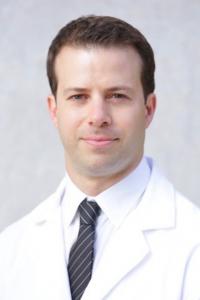Columbia Neurosurgery Celebrates Dr. Ken Shepard as a Jointly Appointed Professor with the School of Engineering and Applied Science
Paving the Road for Advanced Bioelectronics in Functional Neurosurgery
Columbia Neurosurgery and the School of Engineering and Applied Science are partnering together through the joint appointment of Dr. Ken Shepard as the Lau Family Professor of Electrical Engineering and Professor of Biomedical Engineering and Neurological Sciences (in Neurological Surgery). Dr. Shepard received a B.S.E. degree from Princeton University and an M.S. and PhD from Stanford University. He worked as a Research Staff Member at the IBM T. J. Watson Research Center before joining Columbia University in 1992.
Dr. Shepard has worked in many diverse areas, from electronic design automation to CMOS integrated circuit design to two-dimensional materials and biophysics. He has advised more than 70 PhD students and co-founded several companies out of research in his laboratory. His current focus is on applications of advanced electronics to applications in biomedicine, with a recent focus on brain-computer interfaces, which have many applications in neuroscience and for restoring function in patients due to traumatic injury and neurodegenerative diseases.
As part of Dr. Shepard's new role, among other things, he will be partnering with Dr. Brett Youngerman on the development and clinical translation of the Bioelectronic Interface System to the Cortex (BISC), a thin, flexible, wireless, high-resolution brain-computer interface with potential applications in both epilepsy and as a motor cortex neuroprosthesis for paralyzed patients. The team is working to translate this research to human trials, recently completing Columbia's Biomedical Engineering Accelerator (BiomedX) award. BISC was initially developed by Dr. Shepard and his team under the Defense Advanced Research Projects Agency's (DARPA) Neural Engineering System Design (NESD) Program, which "seeks to develop high-resolution neurotechnology capable of mitigating the effects of injury and disease on military personnel's visual and auditory systems."
Says Dr. Shepard, "Our work in brain-computer interfaces is only possible because of our interactions with the world-leading neurosurgery department at Columbia University. My collaborations with Dr. Youngerman in developing BISC have been among the most rewarding of my career."
Dr. Youngerman shared, "Dr. Shepard is a leader in bioelectronics and neural interfaces. He is developing numerous next-generation tools for decoding and modulating the brain that are less invasive, safer, and potentially more efficacious for treating and mitigating neurological diseases. I'm very fortunate to have the opportunity to collaborate with Dr. Shepard to bring these advanced technologies to patients in the near future."
Congratulations, Dr. Shepard, on your new appointment!


